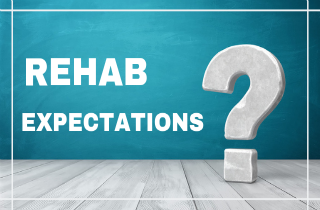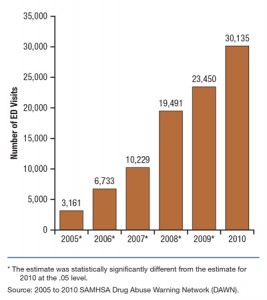Article Overview: Suboxone, a prescription medication containing buprenorphine and naloxone, is used to treat severe opiate addiction. BUT, many individuals become addicted to this medication. What can you expect while in rehab for Suboxone addiction? All answers here, plus we welcomed your questions at the end.
TABLE OF CONTENTS:
- Why Rehab?
- Types Of Rehab
- What To Expect?
- Duration
- What After Rehab?
- Check Out Before Finishing A Program
- Is Rehab For Me?
- Am I The Only One?
- Visiting A Loved One In Rehab
- Costs
- Any Questions?
Why Rehab?
Treatment can help you kick an addiction habit for good!
Addiction to prescription drugs is a common issue not only in the United States, but worldwide. The line between prescription use and abuse is becoming thin as a growing number of medicines are diverted to the illicit market. But being able to buy Suboxone on the black market is not the only reason why people become addicted. Many users take Suboxone longer than prescribed, they also increase their doses without a prior consultation with their doctors.
All forms of Suboxone abuse expose you to the risk of addiction, and should be addressed immediately. Evidence-based treatment approach is often needed to address Suboxone addiction because it’s incredibly difficult to quit on your own. You need guidance to:
1. Understand the reasons for your behavior.
2. Learn alternatives that can help you change your habits
3. Learn and implement healthy lifestyle changes.
Going to treatment gives you access to professional addiction treatment specialists who are specifically trained in methods that effectively deal with these issues.
___
Can’t quit Suboxone on your own?
We can help you get to the bottom of the problem.
Please reach out!
___
Types Of Rehab
Currently, two main types of addiction treatment are available: inpatient and outpatient programs.
Inpatient programs offer constant medical supervision and care to their patients since they live at the facility. The most common services offered include:
- Individual therapy.
- Group therapy
- Education sessions about recovery.
- Network support.
Outpatient programs provide similar services, except the constant medical supervision because patients don’t live there. In fact, their patients visit the facility several days for a few hours per week. Candidates for this type of treatment suffer from mild addiction and have a huge support from their family.
What To Expect?
Suboxone is the brand name of a drug containing buprenorphine and naloxone, which is used to treat severe opiate addictions. Unfortunately, individuals who use this medication can also become addicted to it as well.
Suboxone rehab treatment is different for everyone, since everyone has different needs. Most Suboxone rehab treatment programs offer very similar services, though, and most people go through similar stages during treatment. The main services and stages of Suboxone rehab treatment are listed below.
Drug screening and evaluation
Those in recovery typically undergo a thorough drug screening and overall evaluation before entering a Suboxone rehab treatment program. It is during this stage that addiction specialist determine the severity of a persons addiction and decide how to treat it.
Medical detox
Doctors typically recommend tapering off of Suboxone. If this is not possible or wanted, however, you may be able to enter a medical detox program when you stop taking the drug. This can help make for a more comfortable and safer withdrawal.
Psychological treatments
The fundamental services offered by Suboxone rehab treatment programs https://addictionblog.org/tag/suboxone-addiction-treatment/ are psychological treatments. These treatments, including behavior therapy and group therapy, can help you learn how to cope with your addictions and overcome them.
Pharmacological treatments
Rarely will medications be used to treat a Suboxone addiction http://prescription-drug.addictionblog.org/how-to-treat-suboxone-addiction/ . In some cases, however, a Suboxone rehab treatment facility will prescribe other opioid treatment medications, such as methadone, to treat a severe addiction to this drug.
Education sessions
People who undergo Suboxone rehab treatment will typically attend several education sessions throughout their treatment. Attendance to these sessions may be required every day or every week, and they can help you learn about addiction in general and new ways to overcome it.
Supportive services
Nearly all Suboxone rehab treatment programs offer some supportive services, such as case management. Other services that can help facilitate recovery may also be available, such as child care, vocational services, transportation, and even housing.
Duration
The duration of every rehab program is different. Some are shorter in length while others can last up to a year. The length of the rehab program depends from many factors including:
- The severity of the addiction.
- The length of substance abuse.
Some common types of rehabs can last:
Short-term inpatient rehab: 30-90 days
Usually, a short-term rehab will take a month to complete. Sometimes it may take up to three months. These programs are designed for people with mild to moderate addictions.
Long-term inpatient rehab: 90+ days
People who suffer from severe addiction, and people who have abused substances for several years may need longer rehab stay. These programs provide intensive treatment that may last anywhere from three months to a year.
Outpatient rehab: up to a year or more
People with mild level of addiction can benefit from this program. As an outpatient patient, you will commute to the center few times per week for a few hours to addend treatment sessions. This program can last from 10-16 weeks, but there are programs that can last up a year and more.
What After Rehab?
For anyone in treatment themselves or with a loved one in treatment, the question of what to expect after Suboxone rehab treatment will come up often.
First, before leaving a Suboxone rehab treatment program, you will sit down with a counselor or addiction specialist and create a list of goals they want to reach after treatment. This is known as an exit plan, and it gives you something to focus on and work toward after Suboxone rehab treatment.
A Suboxone rehab treatment aftercare program will also usually be created before completing a program. A typical addiction aftercare program will require you to continue attending daily or weekly therapy sessions on an outpatient basis. Also, people that need a little extra support after Suboxone rehab treatment will be referred to programs or organizations that offer supportive services.
Checking Out Before Finishing A Program
The short, simple answer to this is yes. You can usually leave Suboxone rehab treatment before completion at any time. Of course, we strongly encourage you to stay until you have completed your course of treatment.
Although you may think that you’re ready to leave, there’s a good chance that you aren’t. Many people in recovery who leave treatment programs before completion run the risk of relapsing within months, weeks, or even days. By completing a program, you will obtain all of the necessary knowledge and resources to remain drug-free. Facilities also offer a number of supportive services to those who have completed treatment and need a little help during this difficult time.
Is Rehab For Me?
Do you suspect that you may have a Suboxone problem? Don’t wait, seek for these symptoms:
- Suboxone cravings
- Decreased work/school performance
- Legal problems because of your Suboxone use
- Increased health problems related to Suboxone use
- Finding reasons and excuses to continue with the use.
- You cannot control how much or how often you use Suboxone.
- Tried and failed in quitting Suboxone.
- You have relationship and family problems due to Suboxone use.
- Neglecting responsibilities in favor of Suboxone use.
If you have few and more signs you may need to consult with an addiction professional. Visit this website to find a certified addiction specialist.
Still not sure? Check out these screening tools:
Am I The Only One?
NO! You are not the only one…
In fact, the National Survey of Drug Use and Health found out that in 2016, about 712,000 people misused buprenorphine in the past year. That makes 0,3 percent of people aged 12 or older.
Moreover, the 2010 DAWN Report showed that emergency department visits that involved buprenorphine increased drastically from 3,161 in 2005 to 30,135 visits in 2010.
Additionally, the number of people who need rehab is huge. According to the 2016 National Survey on Drug Abuse and Health reported that 21 million people aged 12 or older need substance use disorder treatments. The numbers are divided into age category:
- 1.1 million adolescents aged 12 to 17 need treatment.
- 5.3 million young adults aged 18 to 25 need treatment.
- 14.5 million adults aged 26 or older needed treatment.
This means that 1 in 13 people aged 12 or older are in need of addiction treatment.
So, the question is not ‘are you alone’, the right question is: Am I ready to ask for help?
Visiting A Loved One In Rehab
If your loved one is getting help for their addiction, there’s a good chance you’re wondering about what to expect when visiting someone in Suboxone rehab treatment. Most visits occur on weekends, and people are usually allowed to have loved ones visit after a few weeks of being in a particular rehab program.
During your visits, which will typically a few hours, you will have the chance to chat with your loved one. Communicating with your loved one is not only a good way to find out more about their treatment and progress, but it’s also a great way to show your support during this difficult time. If family or group therapy sessions are offered during your visits, you should take advantage of these as well.
Most facilities have certain rules regarding visitation. For instance, some will make exceptions to visitation times for relatives from out of town, while others may not.
Many facilities also have a dress code and require their visitors to leave certain items, such as medications and cell phones, at home or on their vehicles. Depending on the facility, you may also be searched when you arrived. To find out more about what to expect when visiting someone in Suboxone rehab treatment, it’s best to contact the facility your loved one is in before you plan your visit.
Costs
Since there are over 14,500 rehab facilities that offer variety of services to people with substance use disorders, the prices will vary too. The average costs starts from $100 per per week, or about $7,000 per treatment episode. Some of the most common average costs are:
Medical detox: The average costs for detox is between $6 to 12K.
Psychotherapy: The average cost for this service starts from almost free to $150 per hour.
Outpatient rehab: This rehab cost can range from $50 to $135 per day. 90-day program can cost anywhere between $3,000-6,000.
Inpatient rehab: This type of program can cost from $235-700 per day.
The final outcome depends from the services you get such as:
- Duration of stay.
- Medication used.
- Drug testing.
- Doctor’s consultations
… etc.
Find more information about the costs of addiction treatment in these articles:
- Effectiveness and Cost-effectiveness of Four Treatment Modalities for Substance Disorders: A Propensity Score Analysis
- The cost of treating addiction from the client’s perspective
- The Economic Costs of Substance Abuse Treatment
Got Any Questions?
Are you or a loved one suffering from a Suboxone addiction? Still have questions about Suboxone rehab treatment expectations? Leave them below, and we’ll do our best to give you a personal thorough answer. If you need additional guidance, we can also refer you to someone who can help.










Related Posts